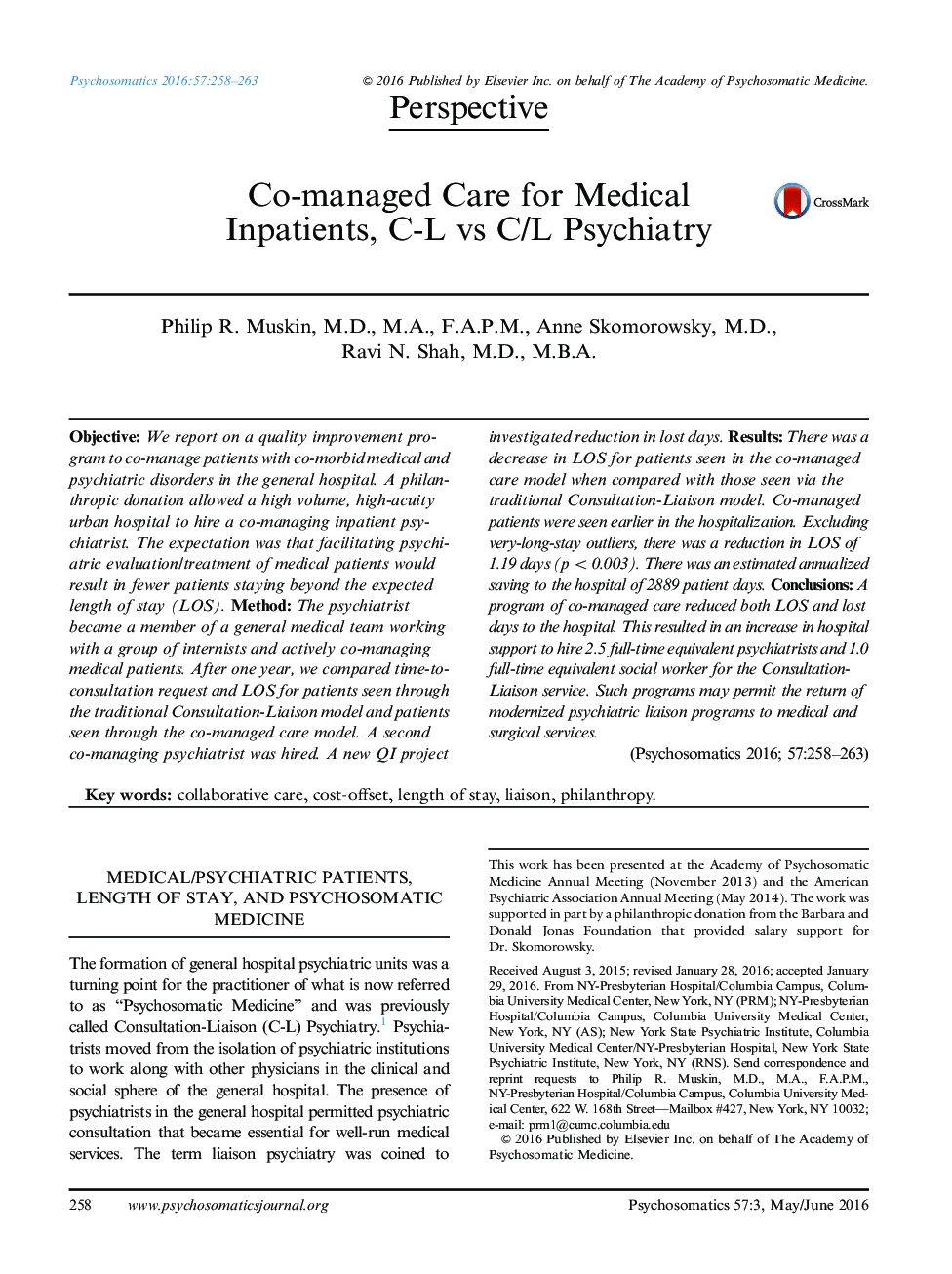| کد مقاله | کد نشریه | سال انتشار | مقاله انگلیسی | نسخه تمام متن |
|---|---|---|---|---|
| 337338 | 547526 | 2016 | 6 صفحه PDF | دانلود رایگان |
ObjectiveWe report on a quality improvement program to co-manage patients with co-morbid medical and psychiatric disorders in the general hospital. A philanthropic donation allowed a high volume, high-acuity urban hospital to hire a co-managing inpatient psychiatrist. The expectation was that facilitating psychiatric evaluation/treatment of medical patients would result in fewer patients staying beyond the expected length of stay (LOS).MethodThe psychiatrist became a member of a general medical team working with a group of internists and actively co-managing medical patients. After one year, we compared time-to-consultation request and LOS for patients seen through the traditional Consultation-Liaison model and patients seen through the co-managed care model. A second co-managing psychiatrist was hired. A new QI project investigated reduction in lost days.ResultsThere was a decrease in LOS for patients seen in the co-managed care model when compared with those seen via the traditional Consultation-Liaison model. Co-managed patients were seen earlier in the hospitalization. Excluding very-long-stay outliers, there was a reduction in LOS of 1.19 days (p < 0.003). There was an estimated annualized saving to the hospital of 2889 patient days.ConclusionsA program of co-managed care reduced both LOS and lost days to the hospital. This resulted in an increase in hospital support to hire 2.5 full-time equivalent psychiatrists and 1.0 full-time equivalent social worker for the Consultation-Liaison service. Such programs may permit the return of modernized psychiatric liaison programs to medical and surgical services.
Journal: Psychosomatics - Volume 57, Issue 3, May–June 2016, Pages 258–263
